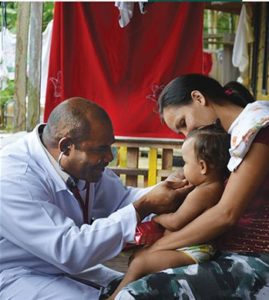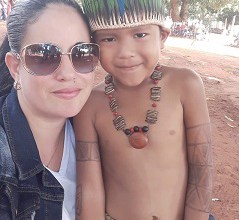Havana, November 15, 2018—Threats from Brazil’s far-right President-elect Jair Bolsonaro have prompted Cuba to withdraw nearly 10,000 doctors serving in the Mais Médicos (More Doctors) program that brought health care to some 60 million poor and indigenous Brazilians in the 2013-2015 first phase alone.
The same man who says he will abolish protected indigenous lands, mainly in the Amazon territory he wants to further open to mining companies, now not only threatens a centuries-old way of life and the entire world’s environment, but also the health care of some 45 million for whom the Cuban physicians were primarily responsible.
The Mais Médicos program, begun in 2013 during the Dilma Rousseff presidency, involved 18,000 doctors from Brazil, Cuba and other countries phase one through 2015, thanks to a tripartite accord with the Pan American Health Organization (PAHO). In fact, the South-South cooperation has been described by PAHO’s Cristian Morales as the “largest project that PAHO has been involved in during the last few years, perhaps in its entire history.” Of this phase’s doctors, 11,500 were Cuban.



Until recently, Morales was PAHO/WHO’s Representative in Cuba, and with colleagues in Brazil, shared the 2017 PAHO Award for Outstanding Team as a result of their joint work on Mais Médicos. “There are zones in Brazil covered 100% by Cuban physicians,” he told MEDICC Review in an October interview. “Every one of the indigenous districts today is served exclusively by Cuban doctors…who sometimes have to travel several days to get to a village.” He lauded the Cuban health professionals for their “tremendous dedication” to make this possible.
But President-elect Bolsonaro doesn’t see it that way and early in his campaign began to rattle swords at the Mais Médicos program, under which 113.4 million Brazilian patients have received medical care from Cuban doctors to date, according to Cuba’s Ministry of Public Health. Of the 3600 municipalities they serve—from the Amazon to the favelas of Río and other cities—700 were home to people who had never seen a doctor before.
Days ago, Bolsonaro went further, imposing new conditions in violation of the tripartite accord and calling into question the qualifications of the Cuban physicians, otherwise overwhelmingly well accepted according to patient satisfaction surveys.
Specifically, amidst a barrage of derogatory rhetoric against Cuba, he announced that the Mais Médicos agreement would not be honored: Cuban physicians must now take exams for medical licenses in Brazil and be contracted individually rather than through PAHO. The current accord provides the doctors receive nearly $1,000 monthly, with the rest of their salaries going to support Cuba’s universal public health system, free of charge to the country’s 11.2 million people.
Under the original accord, Brazilian, then other foreign, then Cuban doctors (in that order) are posted in vacancies, primarily in vulnerable communities both urban and rural. In addition to significantly ramping up the number of doctors serving there, a second phase was intended to build new health centers, and a third to increase the number of Brazilian physicians to replace the Cubans and other foreigners.
However, judging from performance thus far, not enough Brazilian physicians are willing to serve the underserved. Nevertheless, the Brazilian Medical Association has been critical of bringing in physicians from the outside, including Cubans.
In addition to the Cuban Public Health Ministry’s statement criticizing Bolsonaro for “direct, contemptuous and threatening comments against the presence of our doctors”, Cuban health authorities have also expressed concern about the safety of their physicians in Brazil with Bolsonaro at the helm.
The Cuban declaration notes that the island’s health professionals serve today in 67 countries, and Cuba has trained 35,613 health professionals from 138 countries on full scholarship. It states that most of these efforts have been paid for in full by the Cuban government. “The Brazilian people….,” the statement concludes, “will understand who is to be held responsible for our doctors not being able to continue offering their [brotherly, sisterly] contribution in that country.”


